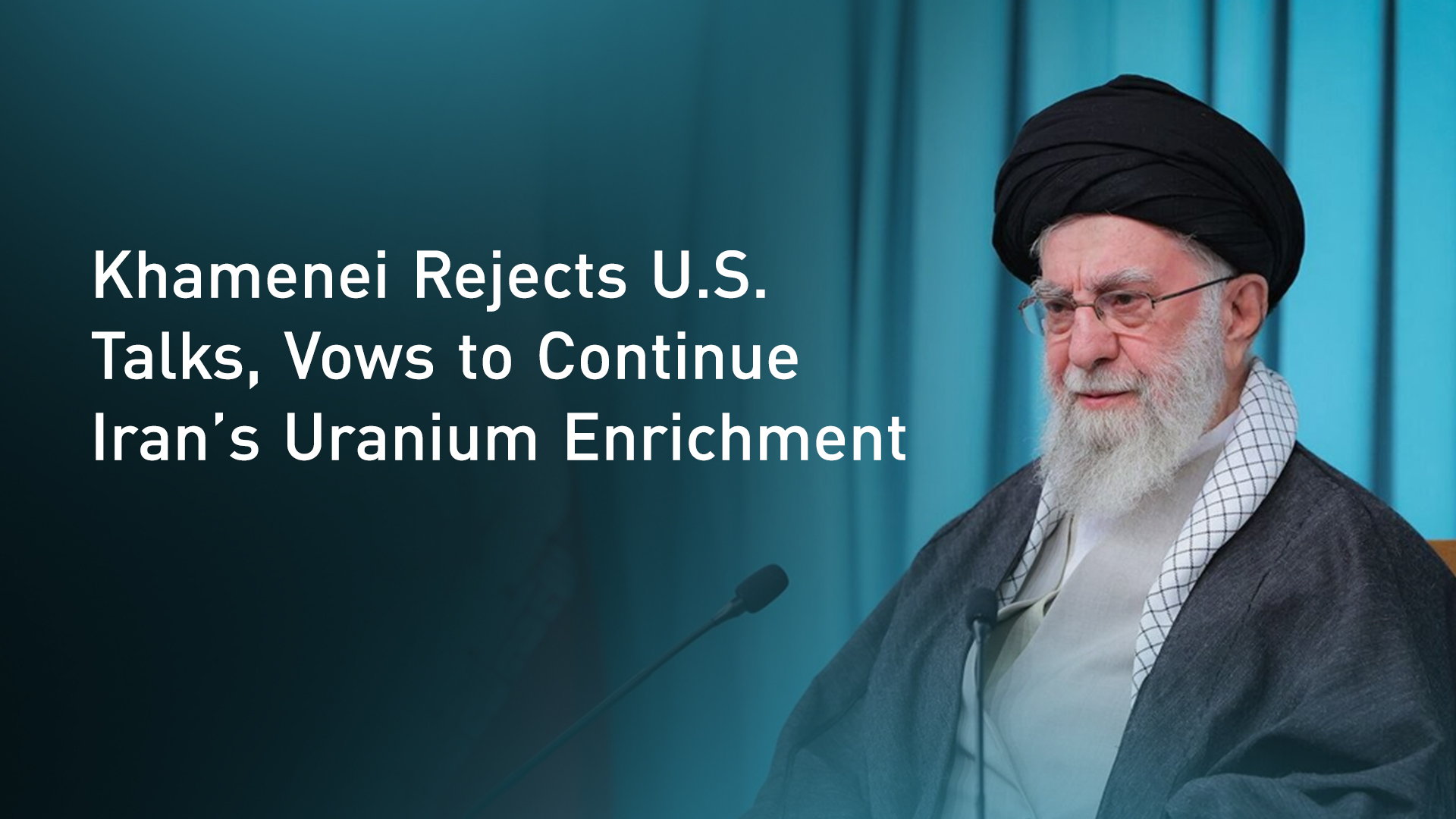Khamenei Rejects U.S. Talks, Vows to Continue Iran’s Uranium Enrichment
Khamenei rules out compromise as Trump boasts of demolishing Iran’s enrichment program and European powers push for renewed sanctions.

ERBIL (Kurdistan24) — Iran’s supreme leader, Ayatollah Ali Khamenei, on Tuesday ruled out halting uranium enrichment, declaring that Tehran would not bow to foreign pressure nor engage in what he called fruitless negotiations with the United States.
In a nationally televised address, Khamenei described any dialogue with Washington as a “dead end,” insisting such talks bring “irreparable harm” to the Islamic Republic.
His remarks came as European powers convened with Iran’s foreign minister in a fresh bid to reimpose tough sanctions on Tehran over its advancing nuclear program.
“The American side has been adamant that Iran must not have enrichment,” Khamenei said. “We did not surrender, and we will not. We did not and will not yield to pressure in this matter or any other matter.”
The Iranian leader accused the U.S. of consistently breaking promises, citing the 2015 nuclear deal — formally known as the Joint Comprehensive Plan of Action (JCPOA) — from which Washington withdrew in 2018.
“One cannot negotiate with such a party,” he said. “Negotiations with the United States on the nuclear issue, and perhaps on other issues as well, are a complete dead end.”
Tehran has long maintained that its nuclear program is strictly for civilian purposes, rejecting accusations from Washington, European capitals, and Israel that it is seeking to build an atomic weapon.
"Negotiating with the US is severely detrimental. They've threatened if we don’t negotiate, they’ll do this & that. Accepting such negotiations means the Islamic Republic of Iran is susceptible to threats. It means we become frightened & surrender in the face of threats," Khamenei wrote on his official X account.
Under current circumstances, negotiating with the US govt. does nothing to serve our national interests, because the American side has already determined the negotiations' outcome in advance: the shutdown of nuclear enrichment in Iran.
— Khamenei.ir (@khamenei_ir) September 23, 2025
This isn't a negotiation – it’s dictation.
The standoff comes after a dramatic escalation in June, when Israel carried out a large-scale military campaign against Iranian nuclear sites.
U.S. President Donald Trump, in a rare direct strike, ordered American warplanes to bomb key Iranian facilities, claiming the move had “completely demolished” Tehran’s enrichment capabilities.
Speaking at the UN General Assembly on Tuesday, Trump doubled down, calling Iran “the world’s number-one sponsor of terror” and vowing it would never be allowed to obtain nuclear weapons.
He also boasted that most of Iran’s senior military commanders had been eliminated under his administration’s policies, asserting, “What the United States has done, no other country has the ability to do.”
Trump further claimed credit for brokering an end to the 12-day Israel-Iran conflict triggered by the Israeli strikes.
The Iranian nuclear crisis has been at the center of Middle East geopolitics for nearly two decades. The 2015 JCPOA was signed between Iran and world powers to restrict Tehran’s nuclear activities in exchange for sanctions relief.
However, Washington’s unilateral withdrawal under Trump in 2018 reignited tensions, leading Iran to gradually ramp up uranium enrichment beyond agreed limits.
Israel views a nuclear-armed Iran as an existential threat and has repeatedly pledged to take military action to prevent it. Meanwhile, the U.S. and European allies remain divided over how best to contain Tehran, with Washington pursuing a strategy of maximum pressure while European states have sought to salvage diplomacy.
The latest confrontation highlights not only the longstanding mistrust between Tehran and Washington but also growing international concerns over Iran’s nuclear ambitions and the claims about its broader role in fueling regional instability.
Western governments accuse Iran of using proxy groups and hardline policies to expand its influence, while refusing to fully comply with international safeguards.
With diplomatic efforts stalled and Tehran unwilling to scale back its program, military experts warn that tensions could escalate further, deepening insecurity in a region already beset by conflict and fragile political balances.